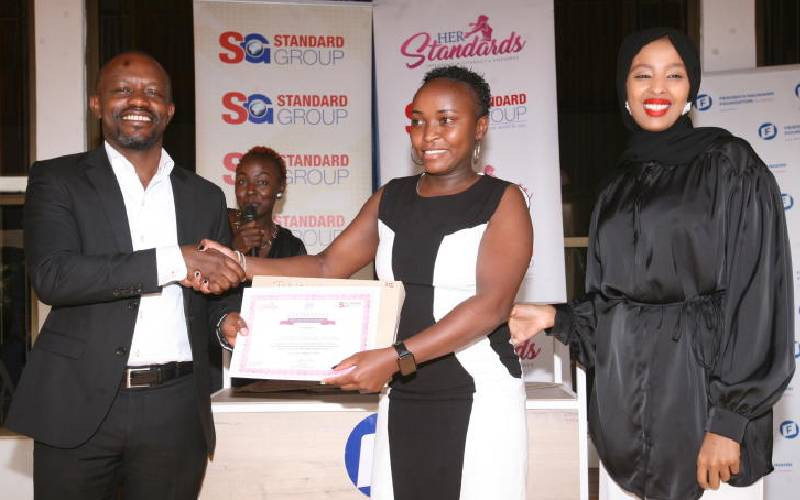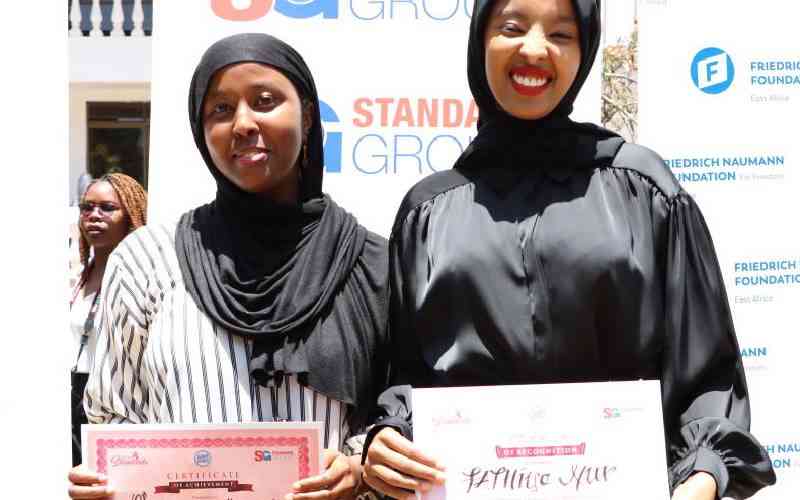
There are people within Kenya who have argued that the current political dispensation favours women. Some would even argue, why bother with the two-thirds gender rule for legislative representation yet there are already so many women in politics.
But this is not just a matter of politics. It is a factor across any career path - women need gender equity not equality. Equality means that virtually everyone gets the same opportunity.
For example, when everyone gets the right to vote. This is a right that Kenyans have enjoyed since Independence unlike countries like the UK which had years of agitation by the suffragette movement, before women could vote.
However, in virtually every sphere of life, there are invisible barriers that women face. Women start off from a point of disadvantage and you have to build in some advantages, otherwise, you're not competing fairly. This is where gender equity comes in.
It is well and good to say, there are many women in politics, but do they get to remain politics and do they get to rise to senior positions? This same question can be applied in public and private sectors across fields.
These thoughts run through my mind as I attended The Standard Group Women Network mentorship graduation held right before International Women's Day.
The programme, held in conjunction with the Friedrich Naumann foundation and WAN-IFRA, Women in News provided a platform for women in media to be mentored for both professional development and personal growth.

I'm proud to note that there are three issues, currently, which make the headlines frequently. These are sexual and reproductive health: Female Genital Mutilation (FGM) and Fistula.
- The Invisible Economy: Kenya's Care Policy to value women's unseen labour
- Over 100 people die by suicide in three months in Nyeri County
- Study links rising temperatures to spike in stillbirths across Africa
- Kenya steps up health investments to safeguard mothers and children
Keep Reading
These are stories often covered by female journalists, based on comfort with subject matter and ease of the survivors to share with another female. Maybe these stories wouldn't have been highlighted, certainly not in the same agency, if it were only up to male journalists to cover them.
The need for more women in executive positions within the media was highlighted. Financial information and analysis company S&P Global found that, in the 24 months following the appointment of a female CEO, the stock price increased 20 per cent in public companies.
Similarly, following the appointment of a female chief financial officer, the firms in its study sample experienced a 6 per cent increase in profitability and an 8 per cent increase in stock return.
Are we saying that the solution to the current crisis the media and advertising industry faces could be solved by hiring more female CEOs? Certainly not. We are simply stating that it certainly wouldn't hurt.
Be it more stories covered or more women in management, gender equity in media needs to be anchored in robust gender policies as Media Council CEO, David Omwoyo, present at the event echoed.
Better yet, as the CEO of the President's Award Kenya Nellie Munala, placed it, "We have to be world ready".
 The Standard Group Plc is a multi-media organization with investments in media
platforms spanning newspaper print
operations, television, radio broadcasting, digital and online services. The
Standard Group is recognized as a
leading multi-media house in Kenya with a key influence in matters of national
and international interest.
The Standard Group Plc is a multi-media organization with investments in media
platforms spanning newspaper print
operations, television, radio broadcasting, digital and online services. The
Standard Group is recognized as a
leading multi-media house in Kenya with a key influence in matters of national
and international interest.











